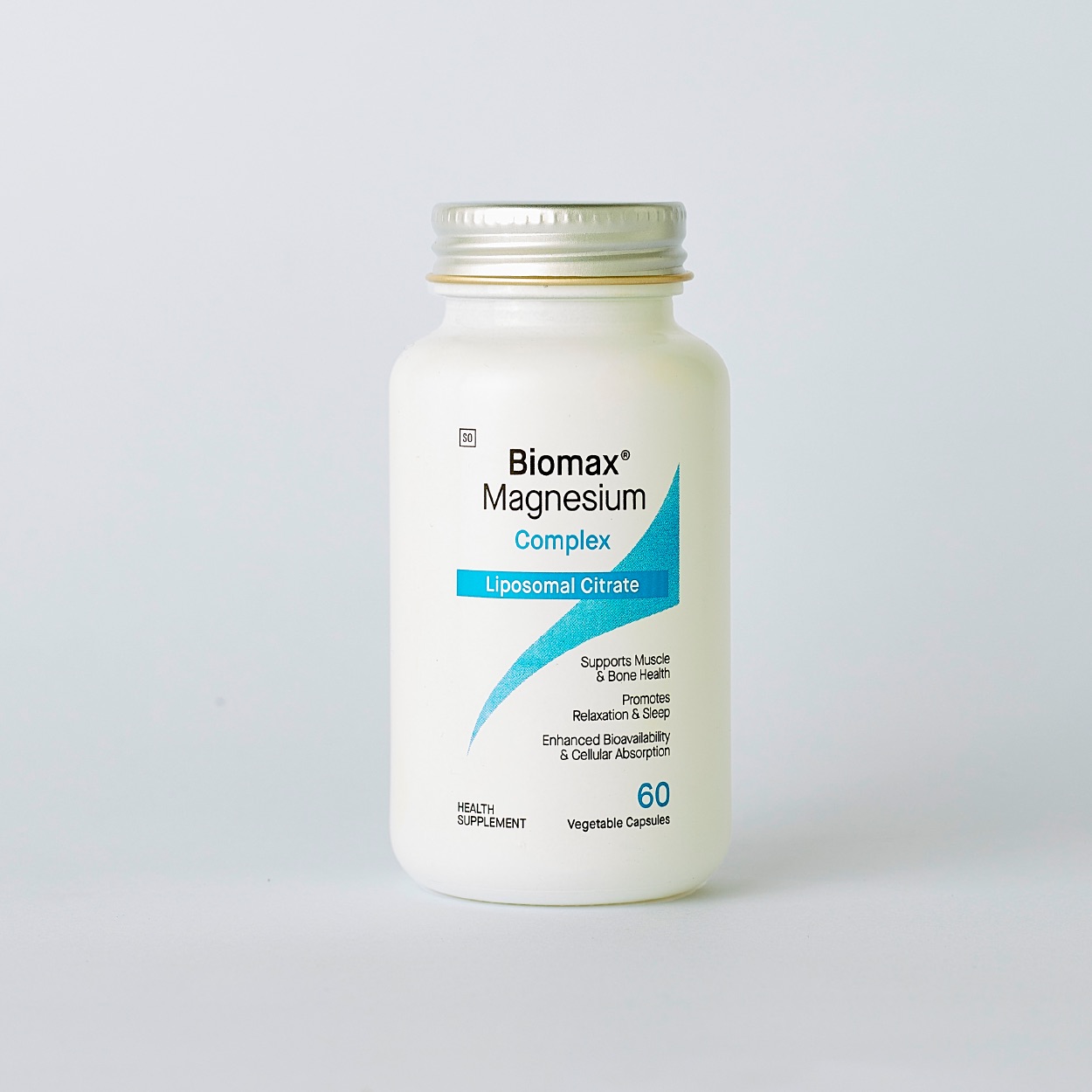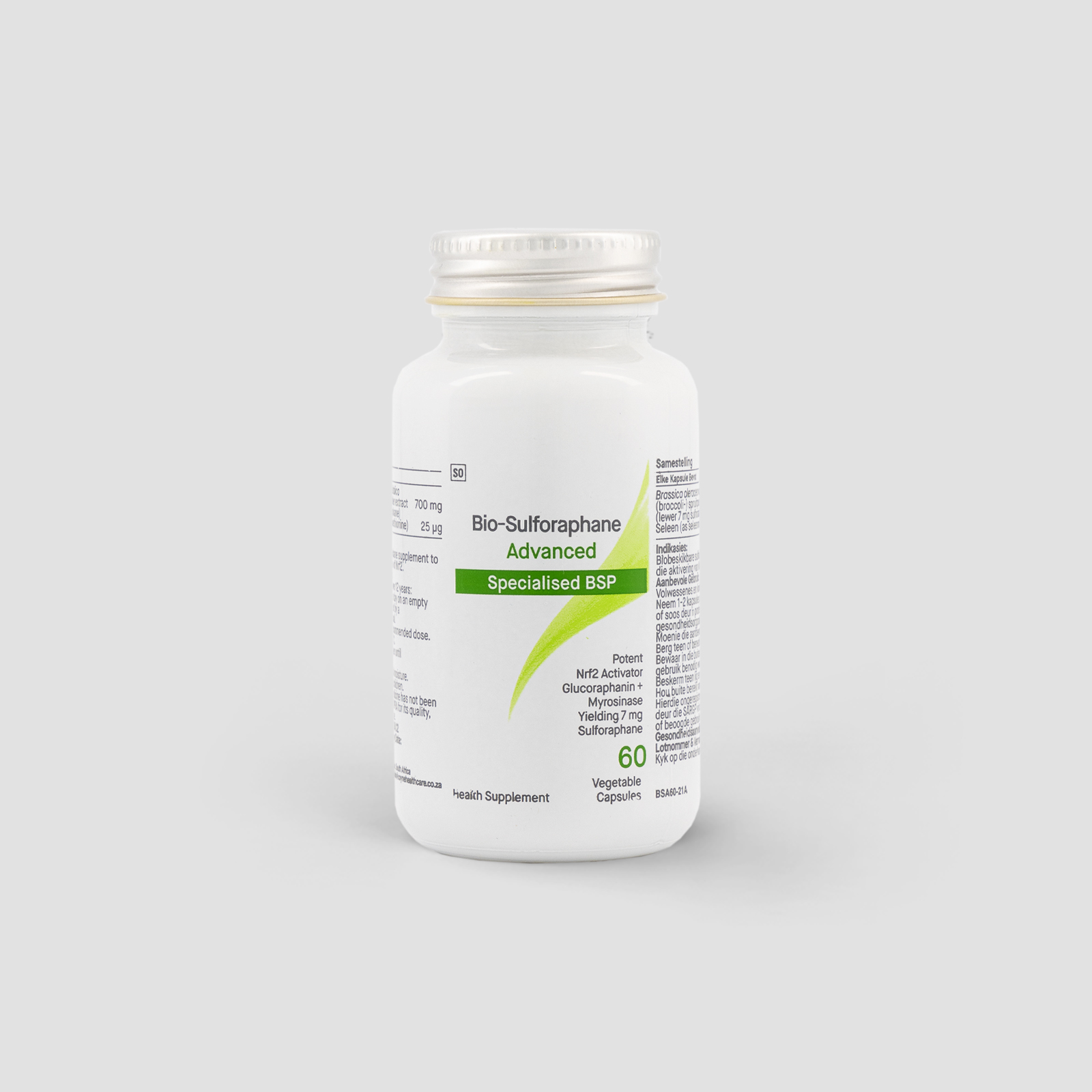Fortunately, there are a range of natural supplements that can help support women through these transitions, promoting balance, easing symptoms, and improving overall well-being.
Supplements For Your 20s
Omega-3 Fatty Acids
Omega-3 fatty acids, particularly EPA and DHA, inhibit the production of pro-inflammatory molecules such as cytokines, helping to reduce inflammation which is linked to hormonal imbalances. Chronic inflammation, inflammation that continues for a prolonged period of time, contributes to conditions such as acne, irregular periods, and mood disorders. By lowering inflammation, omega-3s promote a healthier hormonal environment and can alleviate symptoms related to hormonal imbalances. Omega-3 fatty acids also play a role in maintaining brain health and neurotransmitter function as they promote the release and uptake of serotonin, a neurotransmitter involved in mood regulation, emotional well-being, and sleep [1]. DHA in particular supports the function of dopamine receptors, which is essential for cognitive focus and mental well-being.
Vitamin D
Vitamin D is a fat-soluble vitamin that functions like a hormone in the body. Vitamin D receptors (VDRs) are found in the ovaries, where oestrogen and progesterone are produced. This suggests that vitamin D directly influences the synthesis and secretion of these hormones by binding to these receptors and activating gene expression linked to hormone production. In this way, adequate levels of vitamin D are crucial for the regulation of oestrogen and progesterone.
Vitamin D also has anti-inflammatory properties that help reduce the levels of pro-inflammatory cytokines (molecules that promote inflammation) while increasing anti-inflammatory cytokines (molecules that decrease inflammation). By reducing systemic inflammation, vitamin D helps protect hormone-producing organs, such as the ovaries and ensures that they function properly. Research has also shown that, as oestrogen stimulates bone-forming cells and helps regulate bone remodeling, and, as the hormonal contraceptive pill suppresses oestrogen, it may negatively affect bone strength. Supplementing with vitamin D is therefore beneficial for bone health if you are taking the contraceptive pill [1].
Magnesium
Magnesium is a mineral that is crucial for over 300 biochemical reactions in the body, including hormone regulation. Specifically, magnesium is involved in the synthesis and regulation of hormones, including those that influence the menstrual cycle. Magnesium is also important for insulin function and glucose metabolism because when insulin binds to its receptor on the cell surface, magnesium helps activate the signaling pathways that allow glucose to enter the cell.
This improves insulin sensitivity, meaning cells can efficiently use insulin to take up glucose from the bloodstream. Insulin balance is crucial in maintaining hormonal balance and preventing conditions such as insulin resistance or polycystic ovary syndrome (PCOS), which can disrupt menstrual cycles and hormonal health. Magnesium also helps relax muscles due to the regulation of muscle contraction, making it effective for reducing cramps caused by menstruation [2].
Supplements For Your 30s
Vitamin B12
B vitamins, including B6, B12, and folate, are essential for the production and regulation of hormones. Vitamin B12 supports the production of haemoglobin, the protein in red blood cells that carries oxygen throughout the body. During hormonal changes, such as pregnancy, menstruation, or menopause, the body’s need for red blood cells may increase. For instance, women lose blood during menstruation and may need more red blood cells to compensate. Similarly, pregnancy increases the demand for oxygen and red blood cells to support both the mother and the developing baby. Adequate B12 levels ensure that the body can produce enough healthy red blood cells to meet these needs [8].
Folic Acid
Like vitamin B12, folic acid is particularly beneficial for women in their 30s who are trying to conceive due to its critical role in reproductive health and early pregnancy support. Folic acid plays a role in maintaining overall hormonal balance as it helps regulate levels of homocysteine, an amino acid that, when elevated, can interfere with hormonal balance and reproductive health. By supporting normal homocysteine levels, folic acid contributes to a more favourable environment for conception. Folic acid also supports maternal health as it promotes the formation of normal-sized red blood cells with the correct haemoglobin content, preventing megaloblastic anaemia [1].
Ashwagandha
Ashwagandha is an adaptogenic herb that helps the body manage stress, a significant contributor to hormonal imbalances. Ashwagandha supports the adrenal glands, which produce cortisol and other stress-related hormones. By helping to regulate cortisol levels, ashwagandha can prevent cortisol from disrupting the balance of other hormones like oestrogen, progesterone, and testosterone. It can also enhance thyroid function, which is closely tied to hormonal health as thyroid imbalances can lead to menstrual irregularities, fertility issues, and other symptoms.
Ashwagandha enhances the production of thyroid hormones T3 (thyroxine) and T4 (triiodothyronine) which can be beneficial for individuals with thyroid imbalances, such as those experiencing symptoms of hypothyroidism like fatigue and weight gain [1].
Probiotics
Probiotics are beneficial bacteria that support gut health and contribute to hormonal balance by helping to metabolise and eliminate hormones like excess oestrogen. Eliminating excess oestrogen can prevent oestrogen dominance, which can lead to PMS, weight gain, and mood swings [5]. Probiotics also promote the production of anti-inflammatory cytokines and inhibit the production of pro-inflammatory cytokines. In this way probiotics help reduce inflammation which can interfere with hormonal balance.
Supplements For 40+
COQ10
Coenzyme Q10 (CoQ10) is a powerful antioxidant that supports cellular energy production in the mitochondria and protects against oxidative stress. As women age, their natural hormone levels (particularly oestrogen) decline leading to reduced energy and increased oxidative stress. By enhancing cellular energy and protecting against oxidative damage, CoQ10 can help maintain vitality, and reduce fatigue and other symptoms associated with declining hormone levels [1].
Sulforaphane
Sulforaphane is a powerful compound found in cruciferous vegetables like broccoli, Brussels sprouts, and cauliflower, known for its antioxidant and detoxifying properties. For women going through perimenopause and menopause, hormone fluctuations can increase oxidative stress and inflammation, which may lead to symptoms like hot flashes, mood swings, and increased risk of hormone-related cancers. Sulforaphane helps combat these effects as it neutralises free radicals and activates the body’s natural detoxification pathways (particularly in the liver) to help remove excess hormones, including oestrogen. It also enhances the production of Phase II detoxification enzymes, which play a key role in metabolising and excreting harmful substances and excess hormones [6].
Magnesium
The hypothalamic-pituitary-adrenal (HPA) axis is the system that controls the release of cortisol (the body’s main stress hormone) into the body. Magnesium supports the proper functioning of the HPA axis by influencing the signals between the hypothalamus, pituitary gland, and adrenal glands. Adequate magnesium helps ensure that cortisol levels are appropriately regulated and prevents excessive cortisol secretion. During the transition into menopause, hormonal fluctuations can increase stress levels and cortisol production. Elevated cortisol can disrupt the balance of other hormones, leading to symptoms such as mood swings, anxiety, and sleep disturbances such as hot flashes and night sweats.
By helping to normalise cortisol levels, magnesium supports overall hormonal balance and reduces stress-related symptoms. Magnesium also supports relaxation and improves sleep quality by regulating neurotransmitters that influence sleep, such as GABA [3]. Sleep disturbances are common during perimenopause and menopause, due to fluctuating hormone and neurotransmitter levels.
Ashwagandha
Ashwagandha is beneficial for women going through perimenopause due to its adaptogenic properties, which help the body modulate stress and maintain hormonal balance. During perimenopause, fluctuating hormone levels, particularly oestrogen and progesterone, can lead to increased stress, anxiety, mood swings, and disrupted sleep. Ashwagandha helps regulate cortisol, the body’s primary stress hormone, which can become elevated during this phase and further disrupt hormonal balance. Additionally, ashwagandha supports adrenal health, which is crucial during perimenopause when the ovaries gradually reduce hormone production, and the adrenal glands take over some hormone regulation [1].
Vitamin D
Vitamin D aids in calcium absorption which is crucial for bone strength and formation and works synergistically with oestrogen to support bone health. Without adequate vitamin D, the body cannot absorb enough calcium, which can impair bone health. Oestrogen is important for maintaining bone density, so during menopause when oestrogen levels significantly decline, bone resorption outpaces bone formation. This results in bone loss and an increased risk of developing osteoporosis, a condition characterised by weakened bones that are more susceptible to fractures. As such, adequate vitamin D levels ensure that bones remain strong, even as oestrogen levels fluctuate with age.
NMN
Nicotinamide mononucleotide (NMN) supports hormonal changes in women 40 years and older by enhancing cellular energy production, improving mitochondrial function, and promoting healthy ageing. As women age, declining levels of oestrogen and progesterone contribute to symptoms such as fatigue, reduced metabolism, and diminished vitality. NMN helps counteract these effects by increasing levels of nicotinamide adenine dinucleotide (NAD+), a critical coenzyme involved in energy metabolism and DNA repair [7].
Supporting hormonal health throughout life’s different stages is essential for maintaining healthy bones, energy, mood, and vitality. Whether it’s balancing hormones in your 20s, reducing stress and promoting fertility in your 30s, or managing the symptoms of perimenopause and menopause in your 40s and beyond, the right supplements can make a world of difference. By incorporating these supplements into your routine, you can help your body maintain a healthy balance and feel your best, no matter where you are in your hormonal health journey.




